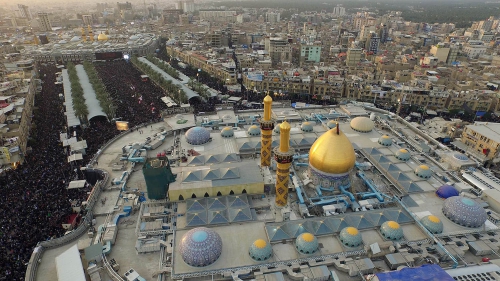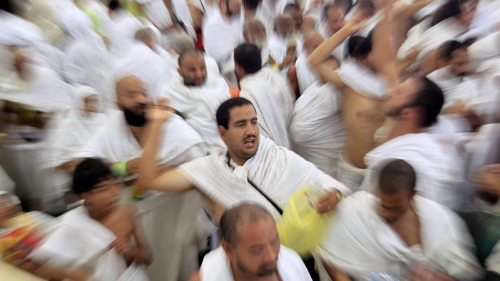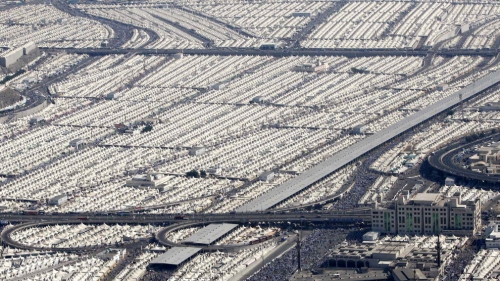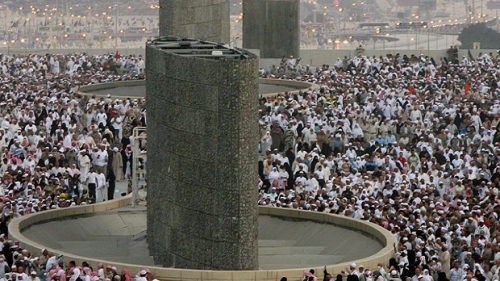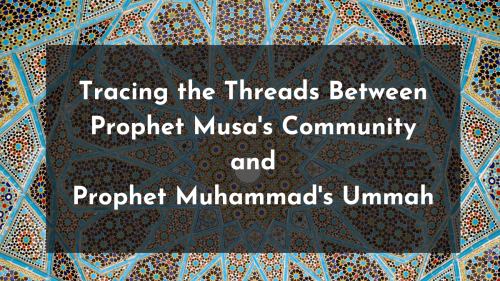Proving God

When Prophet Musa (Peace Be Upon Him) faced Pharaoh, telling him that he was a messenger of the Lord of the worlds, Pharaoh asked: “And what is the Lord of the worlds?” (al-Shu’ara’, 23).
Pharaoh was astounded and angered by Musa’s claims, for he thought – and enforced as a national creed – that he was, not only a living god, but also the most exalted lord. Hence, deceived by his arrogance as well as ignorance, he did not take seriously what Musa had told him. Musa’s example commanded no respect. Pharaoh categorized God as a thing, yet one of the things, belonging to an existential type with common attributes. That is why his question started with “what,” rather than “who”.
Pharaoh’s question was an attempt of misdirection and devaluation. This is an important point because Pharaoh, after all, had generally a fair idea of God. Musa told him at one point: “Verily, you know that these signs have been sent down by none but the Lord of the heavens and the earth as clear evidences (proofs)” (al-Isra’, 102).
Since there is nothing like the essence and attributes of God, and since nothing from His transcendent realm can be compared to anything from the created realm of “things,” Musa by no means could fall into Pharaoh’s trap.
Thus, Musa spoke about the results and effects of God and His attributes. He immediately went for the foremost one, which is so consequential that it instantaneously flabbergasted and silenced Pharaoh.
The Lord of the heavens and earth and that between them
Musa said: “The Lord of the heavens and earth and that between them, if you seek to be convinced with certainty” (al-Shu’ara’, 24).
Pharaoh could not reply anything to this. He only said to those around him, continuing to belittle Musa and his assertions: “Did you hear that?” (al-Shu’ara’, 25).
Pharaoh said this just for the sake of saying anything. He needed to save face. Assailing Musa’s personality and integrity was his best bet to stay on course.
How could it be that Pharaoh’s dominion as a “god” and “lord” was naught in comparison with Musa’s Lord? Musa’s Lord was controlling the whole universe, while Pharaoh was in charge solely of Egypt as a tiny portion of the earth, never mind the heavens.
Pharaoh was not even worth comparison with Musa’s Lord. All that was obvious. People only needed to open their eyes and minds, and to use them aright, charting then a clear path towards certainty.
This way, the debate was essentially over. Nothing but Pharaoh’s arrogance and obstinacy kept it somewhat alive. He harbored a false hope of an eventual success.
Your Lord and the Lord of your first forefathers
Musa went on, touching on more specific and more tangible, yet equally devastating for Pharaoh, issues: “Your Lord and the Lord of your first forefathers” (al-Shu’ara’, 26).
Musa here targeted at once Pharaoh and the elites around him. He did so because even though Pharaoh was the one deified, it was an alliance of entire socio-political systems that acknowledged and sustained the idea.
It was the case of religion being both nationalized and institutionalized. Therefore, it needed to be addressed as such.
Musa’s argument was as follows:
Inasmuch as all of you are mere creations, operating within the realm of the created universe, your Lord is the same God as mine. He is the Creator and Lord; you are but mortals and His servants.
The same applied to those before you, your forefathers. They were created by Him, lived because of Him (belonging to Him), and were in the end returned to Him.
The same destiny awaits you too. Can’t you see that you are not in command of anything, not even of your own lives? Can’t you learn from the fates of earlier generations?
Moreover, the Pharaohs from your forefathers were also “gods.” How come they are dead now, enjoying no authority whatsoever? The present Pharaoh will die as well, and will be succeeded by another one who, in turn, will also claim divinity and existential sovereignty.
And the cycle will go on until, not you, but my – and your - Lord willed.
This verity, too, was self-evident. Pharaoh knew it. However, before people could get stirred up and perhaps start asking questions, Pharaoh hastened to deflect their attention. He did so again by deriding Musa and undermining his trustworthiness.
He said: “Indeed, your messenger who has been sent to you is mad” (al-Shu’ara’, 27).
When cornered, like all tyrants and deniers before and after him, Pharaoh clutched onto a combination of mockery and allegations of insanity. He wanted his people not merely to reject Musa, but also not to listen to him at all.
Musa may be speaking some ostensibly eye-catching and curious things, however that was just because he was a lunatic with wild imaginations. He resided in his own fool’s paradise.
As a sign of mockery, Pharaoh called Musa “messenger.” He attributed him to his people, including the elites: “your messenger.”
In this manner, Pharaoh likewise wanted to be funny. He wanted to amuse his people, deflecting thereby their attention from Musa to himself. Come what may, he always had to take centre stage.
Lord of the east and the west and that between them
Musa, on the other hand, was very patient and focused. In no way could he be thrown off balance. He continued, concentrating on yet more specific and more demonstrable matters, and nailing his argument: “Lord of the east and the west and that between them, if you were to reason (if you only had sense)” (al-Shu’ara’, 28).
Musa brought home the idea that the most compelling cosmic and natural events and phenomena, those that recur right in front of people’s eyes and dictate every aspect of their daily lives, are not controlled by Pharaoh; nor do they take place coincidentally, or by luck.
It is all part of a wise and just heavenly paradigm designed and executed by none else except the Lord of the worlds.
The east (the rising of the sun) and the west (the setting of the sun), and that between them, encompassed everything that people knew and could experience, including themselves and their life struggles. Musa therefore emphasized that those things were so obvious and comprehensible that only such as had no sense and did not reason, could deny them and the truth imbued in them.
In the context of those demonstrable particulars, Musa further elaborated elsewhere: “Our Lord is He who gave each (created) thing its form and nature, and further, gave (it) guidance” (Ta Ha, 50).
At this point, Pharaoh’s had enough. He could not dodge, nor manipulate, Musa’s proficiency and skills anymore. His bankruptcy of ideas could not be masked forever.
Next, he had no choice but to resort to what he was best at, that is, falling back on threats and violence. That, at the same time, functioned for him as an exit strategy from the debate that was lost long ago.
Pharaoh knew that he had just lost a battle against Musa. Thenceforth, he was obliged to do everything necessary to try to win the war.
Pharaoh thus said to Musa: “If you take a god other than me, I will surely place you among those imprisoned” (al-Shu’ara’, 29).
The role of miracles
After that Musa brought into play his material miracles, reaffirming additionally that he was of the truthful. The miracles were as plain and convincing as Musa’s earlier intellectual arguments.
However, so blinded and misguided was Pharaoh that such terms as “plain,” “manifest,” “convincing,” “sensible,” “rational,” and “truthful” had counterfeit meanings in his personal lexicon.
Having seen the miracles, in the form of Musa’s rod becoming a huge serpent and his hand turning white – among others – Pharaoh accused Musa of being a well-versed sorcerer (al-Shu’ara’, 30-34). How Musa in an instant could progress from a nobody and a madman to a skillful magician and a national security threat is anybody’s guess.
Pharaoh summed up his charges against Musa and his brother Harun: “These two are certainly (expert) magicians: their object is to drive you out from your land with their magic, and to do away with your most cherished institutions (most exemplary ways and traditions)” (Ta Ha, 63).
Main principles of Musa’s arguments
The following is the summary of the main principles of Musa’s arguments.
First
Musa took a page from Prophet Ibrahim’s book. He applied the most effective aspects of Ibrahim’s debate with king Namrud (al-Baqarah, 258).
Second
Musa’s arguments moved from universals to particulars.
At the outset, taking Pharaoh through the domains of the total universe, he dumbfounded him. Musa incapacitated him to assert himself even in matters where under normal circumstances he, to a certain degree, would do. Afterwards, Pharaoh was a lost case.
Had Musa reversed the approach, Pharaoh would have been allowed to rant about himself. His sumptuous haughtiness and charade will refuse to go away, somehow disrupting Musa’s efforts.
In his debate with Namrud, Ibrahim applied a method of progression from particulars to universals, thereby initially allowing Namrud to try and dictate the proceedings.
Third
Creation, both as a concept and physical reality, is the strongest evidence of the Creator. He is to be sought in His holy acts and the effects of His holy attributes. The imperfection as well as impermanence of this world are the signs of His not only existence, but also perfection and infinity.
In this materialistic and fleeting world, people need to be convinced of the presence, greatness and activeness of God only. His essence and actual attributes are beyond the scope of everything this world can offer. Those will be revealed in the Hereafter, at different and more appropriate stages of people’s existential journey.
The biggest problem is to think that this world is everything. Nay, imperfection can feature only imperfection. Perfection and perpetuity are reserved for the perfect and perpetual state of being.
Non-belief is often a result of impatience, which in terms of destructiveness can be on a par with ignorance and conceit. Pharaoh definitely suffered from all the three diseases.
Fourth
The signs of God’s existence are everywhere. They are manifested powerfully and clearly as much in the slightest (particulars) as in the greatest aspects (universals) of creation. People just need to liberate themselves and their God-given capacities from the fetters of matter and ego to be able to see, read and comprehend those signs.
As a small digression, once a student asked a sage about the most undeniable proof of God’s existence. The sage answered: “You.” This means that “you” as a created thing must have the Creator, due to the fact that you – and every other created thing – can neither create yourself or anything else, nor come into being by accident. What is more, as an aspect of creation, you are full of signs which speak volumes about the Creator and Lord. The first one who should read and act upon those signs is nobody else but you.
The message of the sage was that every individual is a microcosm. Failing to read the self hinders a person from decoding and utilizing the other depositories of signs.
Rene Descartes’ dictum “I think, therefore I am” could be extended to “I exist, therefore God exists.”
The Qur’an thus constantly appeals to human logic by affirming, for example, that there cannot be doubt about God, the Creator of the heavens and earth (Ibrahim, 10); that people on no account should disbelieve in God because they were lifeless and He brought them to life, then He will cause them to die, then He will bring them back to life, and then to Him they will be returned (al-Baqarah, 28).
Turning further to the power of people’s inborn nature and their reason, the Qur’an asks: “Or were they created by nothing, or were they the creators (of themselves)? Or did they create the heavens and the earth? Rather, they have no certainty (sure faith). Or have they the depositories (containing the provision) of your Lord? Or are they the controllers (of them)? Or have they a stairway (into the heaven) upon which they listen? Then let their listener produce a clear authority” (al-Tur, 35-38).
The same spiritual and intellectual character issues from the depths of Musa’s arguments against Pharaoh.
Fifth
Musa was as straightforward as he could be. There is nothing simpler and more direct than the truth, so means and methods used for it should be correspondingly like so.
After proclaiming that the created universe with everything therein is the most categorical evidence of the Creator’s existence, Musa revealed that the Creator is neither passive nor distant from His creation. Rather, He is the ever-present and ever-vigilant Sustainer and Guardian. A sign of Him being thus is His continuous sending of His messengers with His holy revelations, which are supported by incontestable miracles.
The signs of creation and the signs of revelation subtly complement each other. They can be jointly productive exclusively by forging a dynamic reciprocal relationship at each and every level of life’s physical and metaphysical reality.
The aim of doing so is to make sure that people as God’s vicegerents on earth are given multiple opportunities to learn about creation and about God as its Creator, to communicate with God more intensely and more intimately, and to thus draw closer to God on an ever-upward spiritual journey.
To Pharaoh - and others – Musa and his message denoted a divine opportunity. They were the sources of all authentic knowledge and wisdom. Access to Heaven was only through them.
Topics: Heaven, Pharaoh, Prophet Moses (Musa), Tawhid (Oneness Of God) Values: Knowledge, Wisdom
Views: 4695
Related Suggestions






